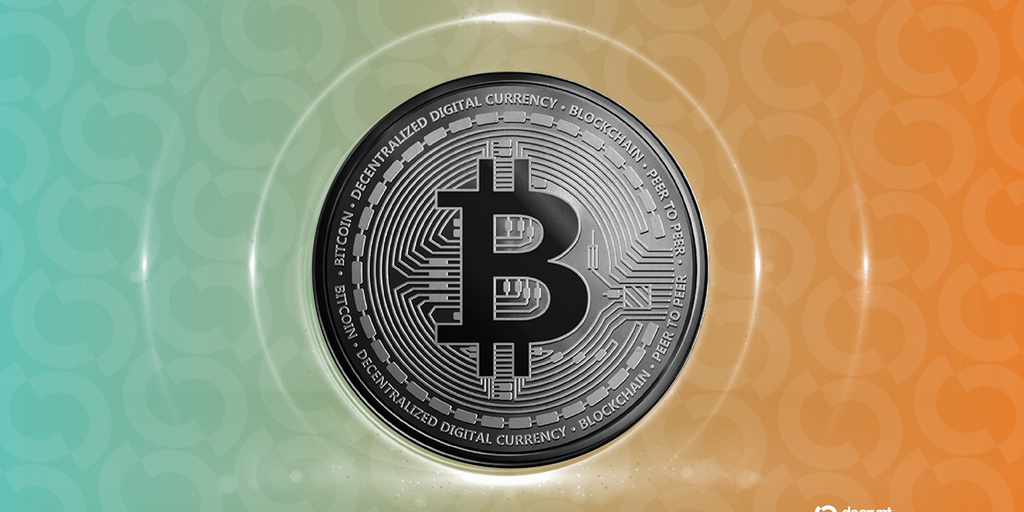Bitcoin Magazine

Tribalism Is Not The Core Problem
The United States government stands mere months, if not weeks, from the passing of stablecoin legislation that will set the playing field for the global economy for decades, if not centuries, to come.
During this crucial moment, in which we should all be keeping our eyes locked with precision on the prize, the best and brightest defenders of the one neutral digital asset have once again bifurcated into the trenches of “Us. Vs Them.” As sure as the next block, seemingly every ten minutes there’s another attempt from a faction within the group to imbue an intense ethical intention over the invention of Bitcoin. These groups converge to share interpretations of the Sacred Text –– Satoshi’s Whitepaper ––or pour over his forum posts on BitcoinTalk, hoping to find a path forward. It seems without fail, no matter when looking at the factional Part, or the amorphous Whole, the selected writings of Bitcoin’s inventor always conveniently enable the exact behavior and optionality –– or lack thereof –– that is best for the current arguing party.
This is to say, the observer of Bitcoin, when attempting to gain influence over more users, simply projects and amplifies their own reflection upon the monetary protocol, as it relates to their own position via their specific stake within the system. There is no neutral reflection or position to be expressed –– every voice and every idea fundamentally must come from a place of origin. While many attempt to go to great lengths to curb this bias from their publicly articulated analysis –– not to mention the many more that could claim ignorance entirely –– whether you are able, willing, or aware, your beliefs are beheld by the context you witness, and cannot be separated to create an objective meaning from a subjective experience. In short, everyone talks their own book. It’s a requirement to talking.
On today’s social media platforms, the actualization of one talking their book is even further manipulated beyond strictly fundamental financial incentives, and each idea becomes a piece of content competing for air in the rough seas of algorithmic influence. To not have an opinion on the latest thing, to not express and articulate said opinion publicly, is to drown in the void of irrelevancy. On Twitter, a Bluecheck raft is seen as a necessity, normalized by the supposed dissidents and mainstream alike. The digital front, while an important one, has been eroded not by the proverbial stick, but by the poisoned carrot. Payouts, likes, and followers have replaced credibility as the currency of relevance, not due to actions by the consumers, but by the creators. Even worse, many creators have off-shored their creative capabilities –– i.e., their ideas –– to AI Chat Bots and Large Language Models, removing the humanity entirely from the output, rendering the content ocean littered with homogenous globs of unthought thoughts. The late-stage creator economy has ultimately failed to promote originality, and instead has given rise to an multi-headed hydra of next-up influencers ready and able to churn out the freshest of ChatGPT chum at the behest of curtained algorithmic masters out of sight.
The unseen incentives will be our downfall –– not our ideologies, not our intellect, and not our preparedness, nor the lack of any of these things. While applicable to many mediums and masteries, the hidden incentives of programmable money demonstrate this concept far greater than, say, independent media figures, fitness and health gurus, or dissident philosophers.
Today’s Bitcoin culture war comes at a dangerous time, when the single greatest threat to its neutrality of incentives comes to the protocol layer. While hours and hours of podcasts from both sides of the divorce might lead you to believe this attack vector comes from JPEGs or the filters that discourage them, in fact, the imminent corrupting agent comes from the reintroduction of dollar stablecoins to the blockchain as Bitcoin itself remains infeasible as a medium of exchange that can service billions.
Both sides of the debate, the Knots/Pro-Filters or the Core/Filters-Agnostics, are not dealing with the core of the real problem brewing in Bitcoin today. The Knotsians claim all non-monetary use cases of Bitcoin are against the nature of the protocol, while remaining absolutely silent on whether or not these same ethics are to be applied to Tether’s homecoming –– “Bitcoin-native” USDT dollar stablecoins via Taproot Assets –– being stored in the distributed database known as the blockchain. The Core defenders, who claim to rightfully stand beside the most ambitious and successful open source project of all time, have little to say about the maintainers lack of interest in pursuing optionality that would enable billions of users to benefit from Bitcoin’s disinflationary monetary policy, rather than simply the millions of already-adopters. Both sides are, at best, silent partners in the scaling-by-financialization of Bitcoin via stocks and debt-instruments, custodians, exchange traded funds, and tokenized dollars, rather than by making UTXO ownership feasible and efficient. Filters, spam, Core, Knots, are all distractions from the real problem brewing on the horizon: the incentive distortion of stablecoins.
If Bitcoin remains programmable money, and the mere existence of this protocol-level debate perpetuates the idea that ossification has not yet arrived, why must we pledge allegiance between two teams that directly serve neither of the issues at hand? Bitcoin deserves more client optionality, and Knots is not innately a bad idea, nor are many of the mining concepts marketed by OCEAN employees. Bitcoin Core has secured trillions of dollars of value with an unparalleled up-time for a financial protocol. But Bitcoin will fail to stablecoins, inadvertently perpetuating the United States’ Treasury ponzi across the globe, while introducing dollarized, perverse incentives to the entire game theory of Bitcoin’s block production –– and thus unstoppable transaction settlement –– if we are slothful and distracted in failing to maximize self-custody and keep dollar tokens off the only currently-decentralized chain.
Did inscriptions create a newly-found demand for blockspace that directly competes with the companies enabling Larry Fink’s vision for Bitcoin as “a technology for asset storage?” Do Dickbutts and Monkey JPEGs make the Tether-ification –– i.e., the dollarization –– of Bitcoin more expensive? Perhaps. But there is simply no evidence that the players on either side of this culture war are actively or willingly compromised, and to suggest such is a dangerous game.
As we wrote nearly two years ago in a previous call to action, “the network must remain practically useful for anyone, or it risks becoming practically useless for everyone.” The only responsibility today’s Bitcoiner must uphold is to leave the protocol as permissionless and as serviceable as it was when they found it. Part of this innately involves the mission Core sets out to achieve with its tireless approach to perpetuating an extremely complicated, novel piece of software across an ever-changing landscape of hardware and software updates. Part of this, also, innately involves the mission Knots and OCEAN attempts to achieve with its pursuit of purity of financial activity and mining decentralization via block construction and payout methods.
Blindly opposing or supporting the Current Thing because of Twitter posts and podcasts will not deliver us from the known evils, nor prepare us for the unknown. Ultimately, both paths forward on their own will fail to achieve the promise of Bitcoin to its fullest extent.
Reject the binary presented by the culture war and think for yourself.
This is a guest post by Mark Goodwin. Opinions expressed are entirely their own and do not necessarily reflect those of BTC, Inc. or Bitcoin Magazine.
This post Tribalism Is Not The Core Problem first appeared on Bitcoin Magazine and is written by Mark Goodwin.
Bitcoin Magazine
Tribalism Is Not The Core Problem
The United States government stands mere months, if not weeks, from the passing of stablecoin legislation that will set the playing field for the global economy for decades, if not centuries, to come. During this crucial moment, in which we should all be keeping our eyes locked with precision on the prize, the best and
This post Tribalism Is Not The Core Problem first appeared on Bitcoin Magazine and is written by Mark Goodwin. CULTURE, FEATURED, Core, jpegs, Knots, Spam, Taproot Assets, USDT Bitcoin Magazine



























































































































